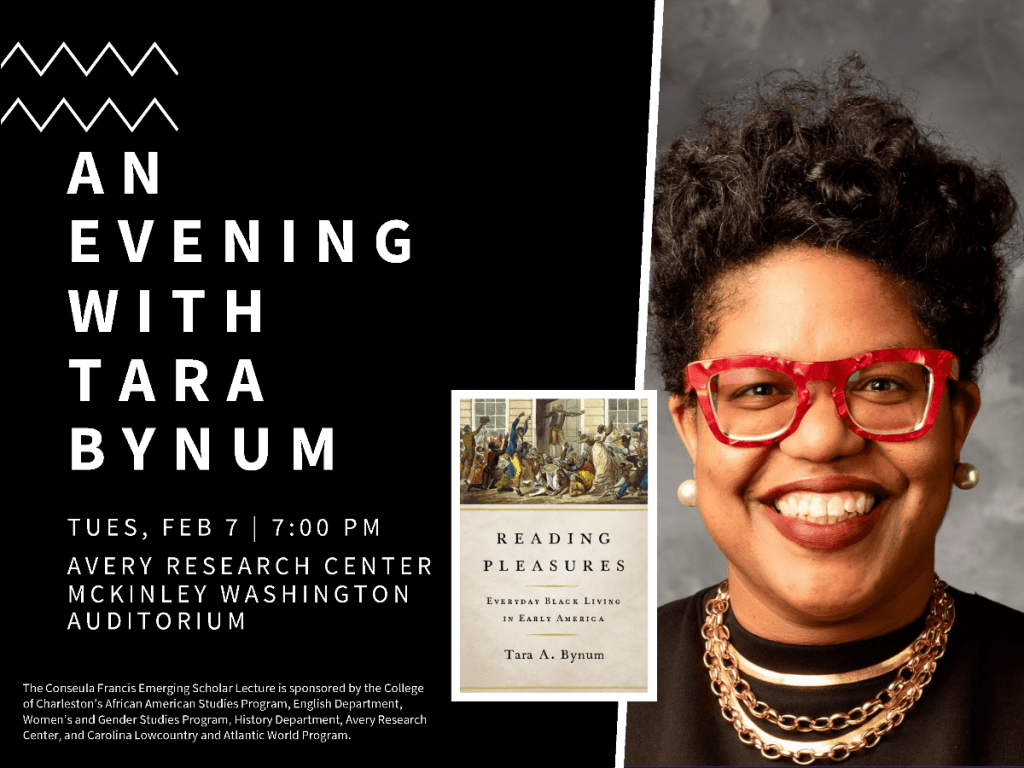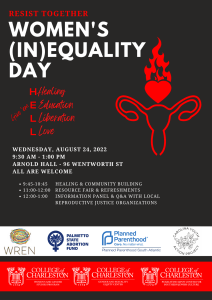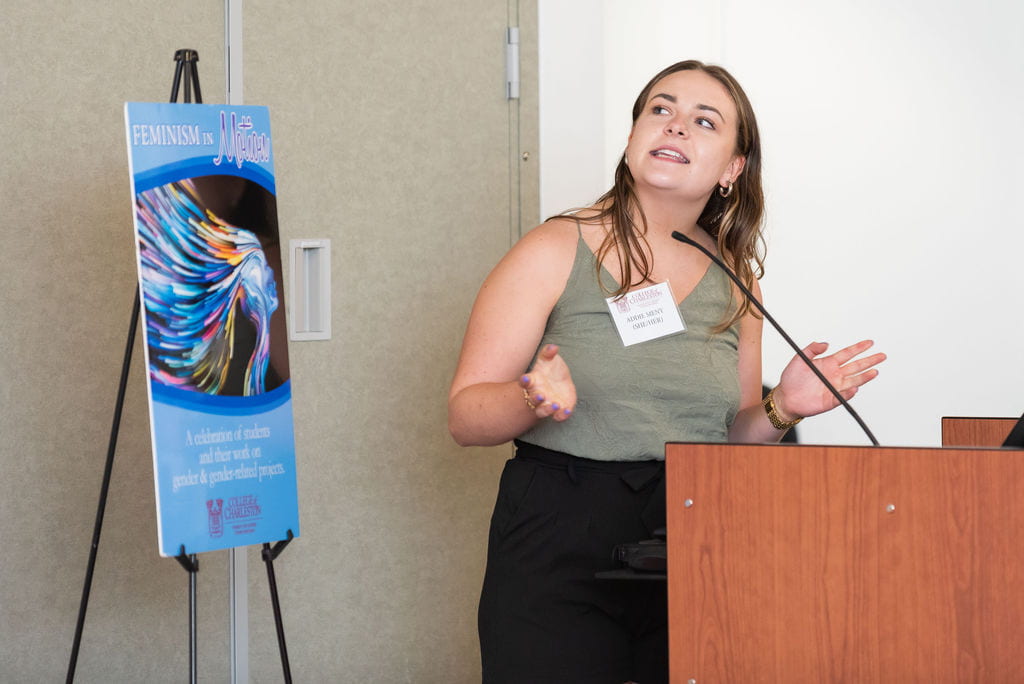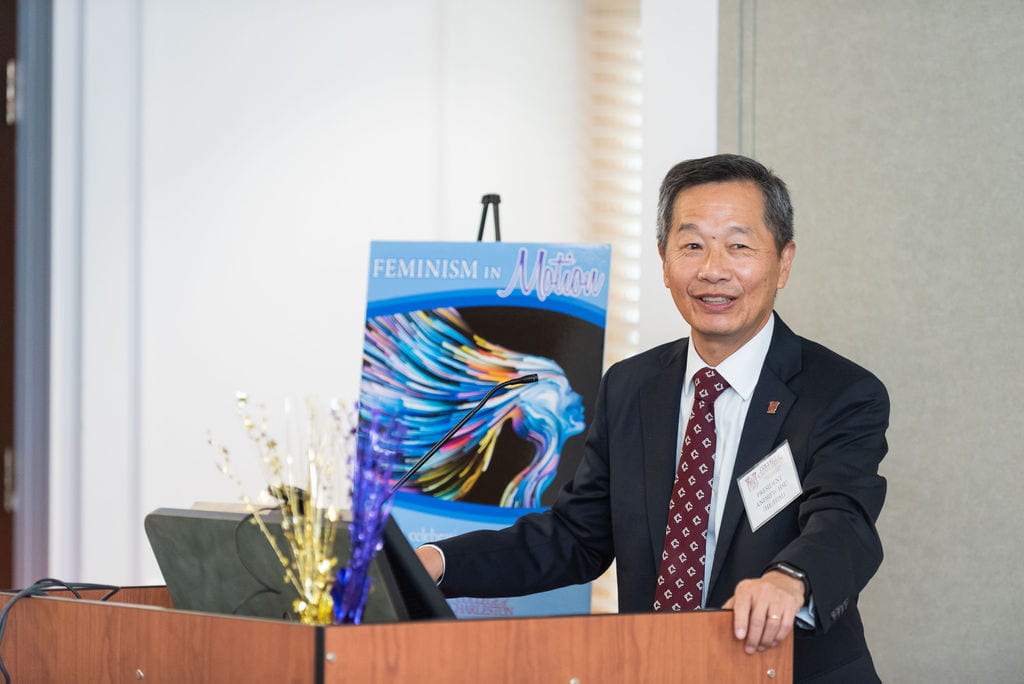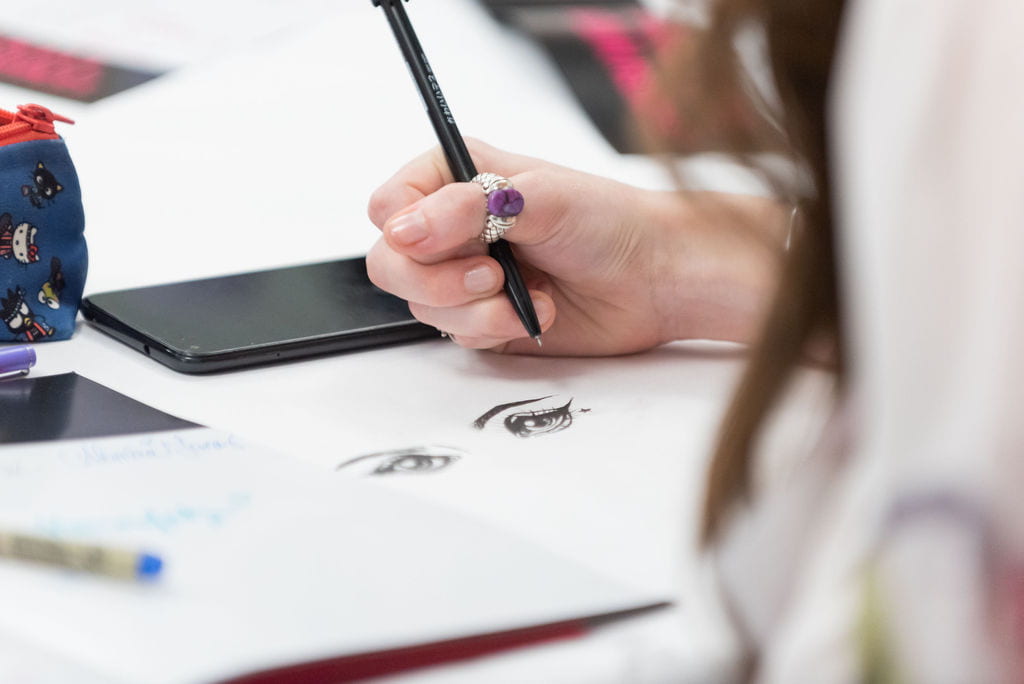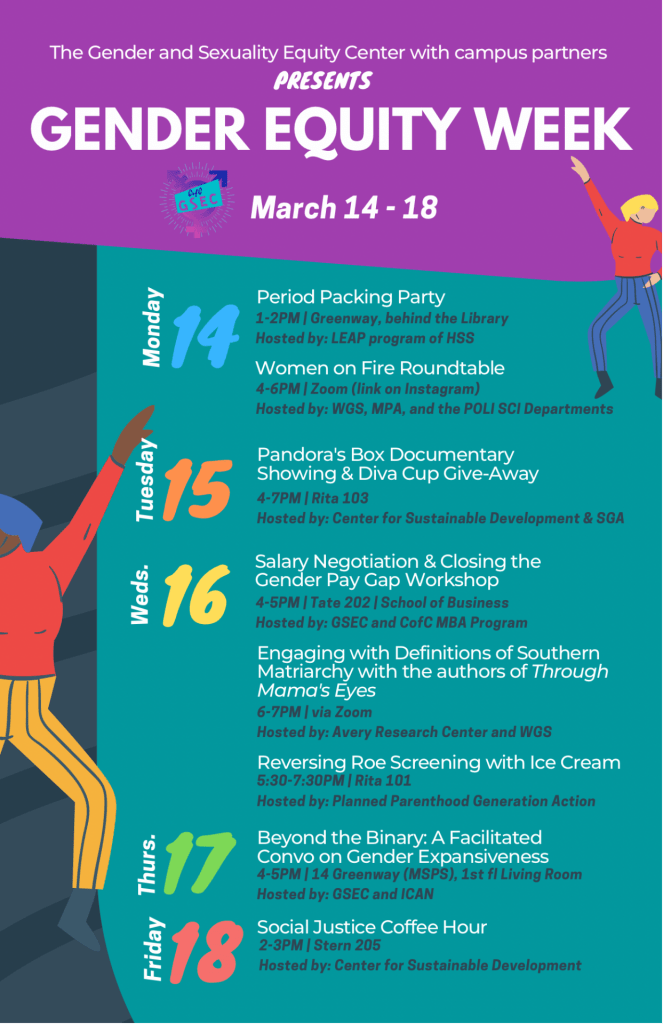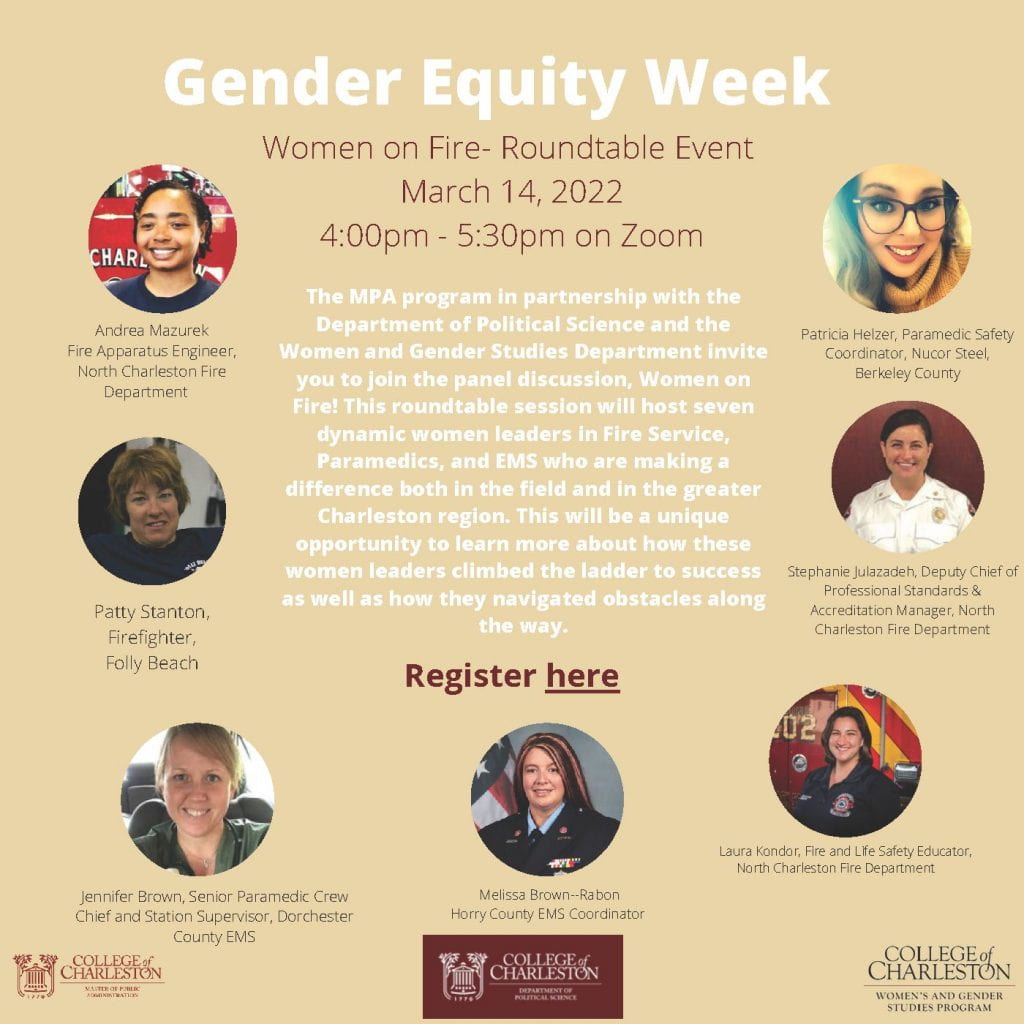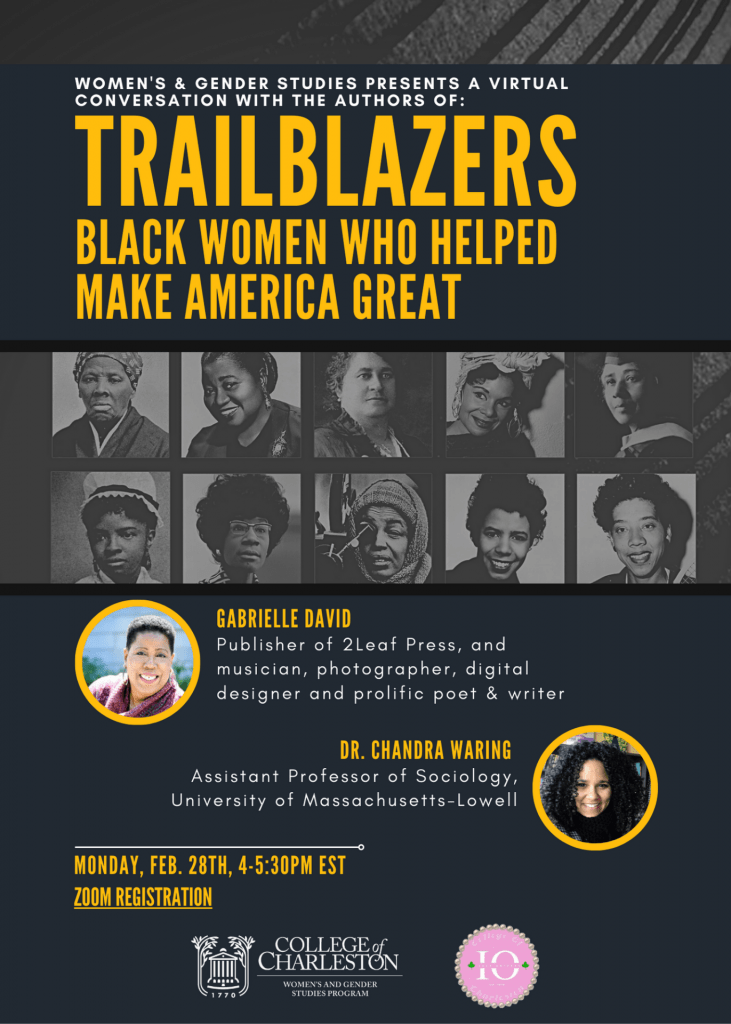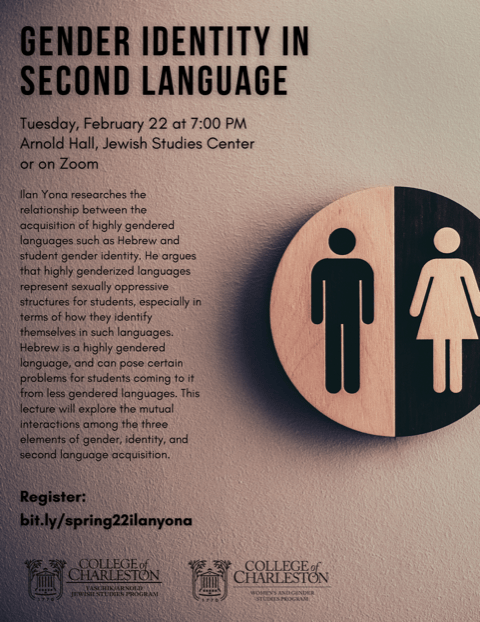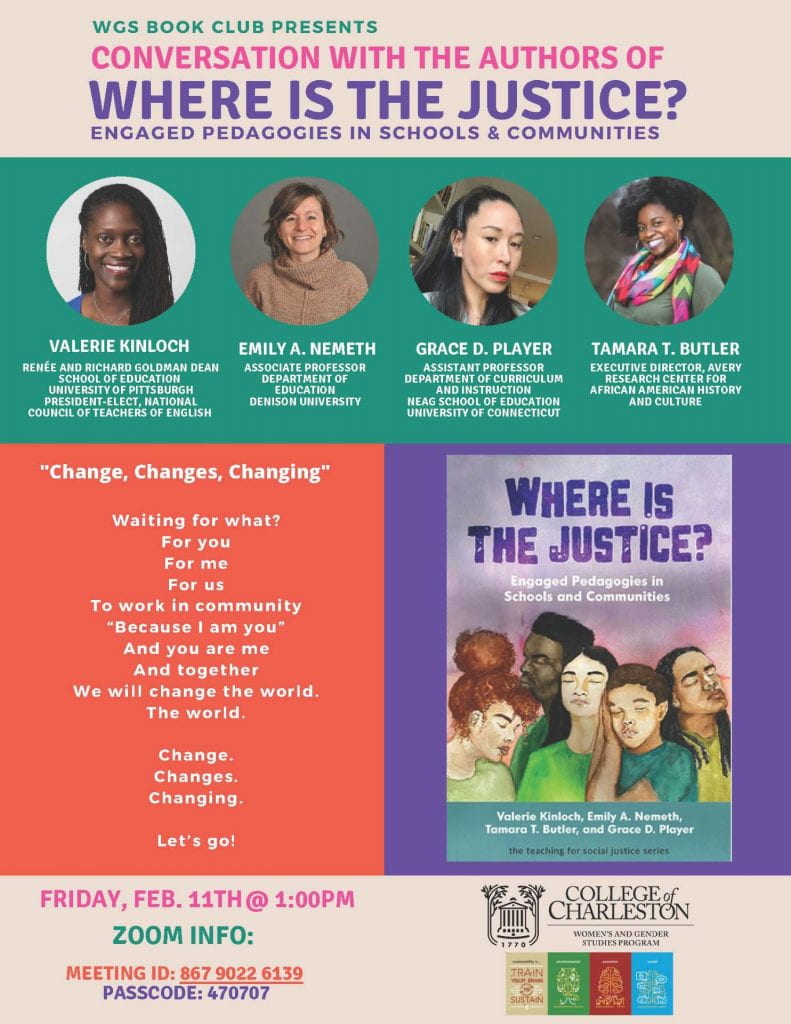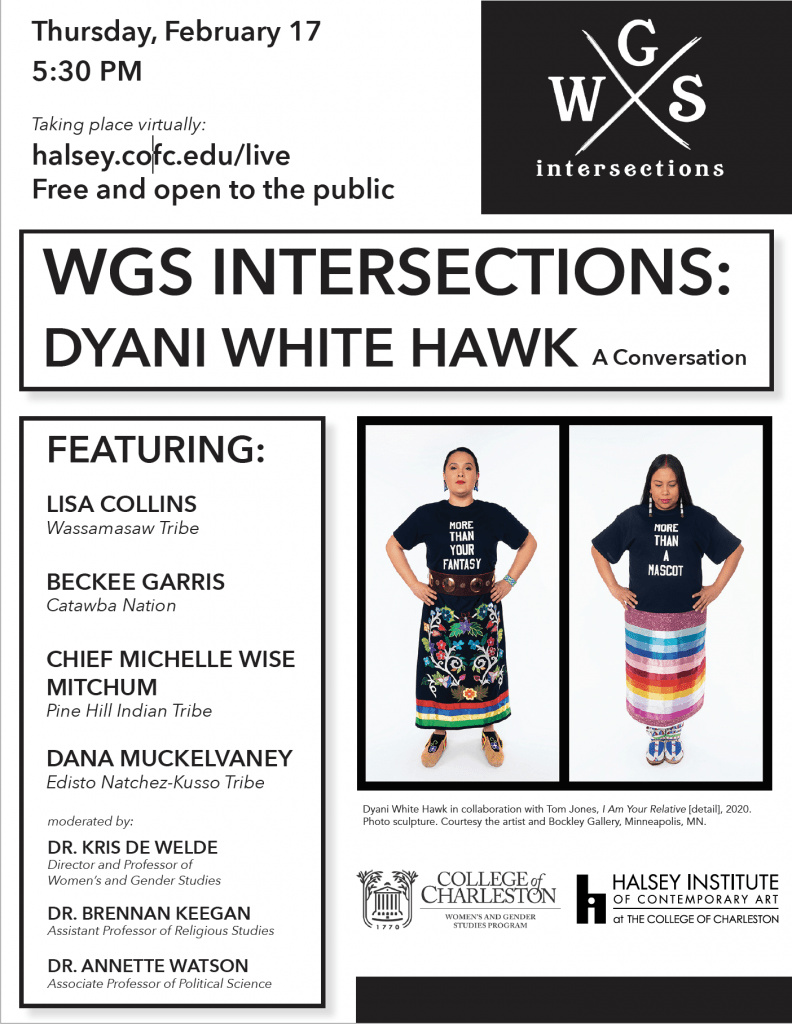
Join WGS and Halsey Institute of Contemporary Art on Thursday, Feb. 17th at 5:30 p.m. for another WGS Intersections! Don’t miss DYANI WHITE HAWK a Conversation. The panel will feature Lisa Collins (Wassamasaw Tribe), Beckee Garris (Catawba Nation), Chief Michelle Wise Mitchum (Pine Hill Indian Tribe), and Dana Muckelvaney (Edisto Natchez-Kusso Tribe). Moderators are Dr. Kris De Welde (Director & Prof. of WGS), Dr. Brennan Keegan (Religious Studies), and Dr. Annette Watson (Political Science).
This is a virtual event. Watch at halsey.cofc.edu/live. Free and open to the public.
About her exhibit HEAR HER (from Halsey’s website):
Dyani White Hawk’s work illuminates the lived experiences of Native Peoples. With her video, photography, and works in other media, she aims to use language of visual art to bring light to the chasm between our understanding of history and the truth. Her work weaves together forms from the canon of Western art along with the visual languages and traditions of Native people. In doing so, her work spotlights Native women, whose strength and fortitude through centuries of colonization have helped their people’s languages and cultures to survive.
On view in Hear Her, White Hawk’s video installation LISTEN presents a series of Native women speaking the language of their people. Each film takes place on the land of each participant’s nation, and viewers hear the respective languages without translation. As such, White Hawk puts a focus not only on the resonance of each speaker, but she also reveals society’s collective ignorance of the people, culture, and language of those native to the land on which we live. Chapter 1 of LISTEN features eight videos and White Hawk plans to continue the series to include 24 videos. The Halsey Institute commissioned White Hawk to create a video to honor the Catawba Nation, located in South Carolina.
White Hawk’s photography installation I Am Your Relative confronts the gross stereotypes and distorted caricatures that dehumanize and commodify Native women. This installation, along with LISTEN, helps White Hawk shine a light on the misrepresentation of Native Peoples while reinforcing the fact that we are all connected as human beings.
Dyani White Hawk: Hear Her is sponsored in part by South Carolina Humanities, a not-for-profit organization; inspiring, engaging and enriching South Carolinians with programs on literature, history, culture and heritage. This exhibition is also supported by the Center for Sustainable Development at the College of Charleston, which provides students with the opportunities and resources to engage in our community sustainably.
Image Credit: @dwhitehawk in Collaboration with photographer Tom Jones, “I Am Your Relative” [detail], 2020, photo sculpture, © Dyani White Hawk. Courtesy of the artist and Bockley Gallery, Minneapolis, MN.
